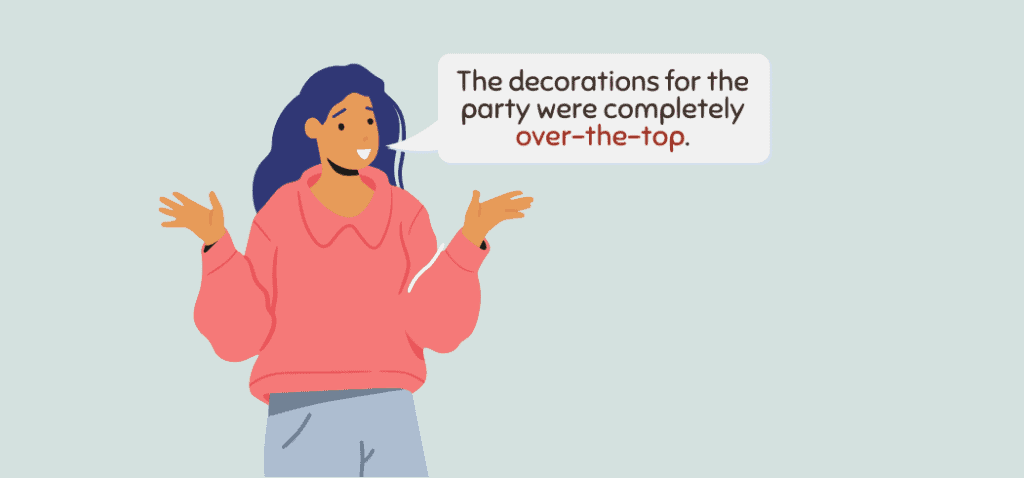Idiomatic words and phrases have a figurative use that is generally very different from their literal meaning. The English language contains idiomatic phrases that help create analogies for a more interesting and understandable message.
However, idioms can confuse those new to the language or unfamiliar with the term. Over the top is an idiomatic phrase with a fairly simple, easily understood use. It also has an interesting origin.
Let’s take a closer look at what over the top means and how you can use it in your speech and writing.
What Does Over the Top Mean?

Over the top is an idiomatic phrase that means to push oneself over a figurative finish line or to achieve a goal that one has been figuratively climbing toward. It is regularly used as an adjective to help add detail and modification to nouns and pronouns.
For example:
- After setting goals and facing major setbacks, I was excited to finally be over the top and on my way to success.
More often, however, the idiom over the top is used to mean something foolhardy, excessive, or outrageous, something tremendously exaggerated.
For example:
- She realized she had gone a bit over the top regarding the party planning.
Another fun fact of use, the abbreviation OTT is commonly used in British English, though it is unknown in American English.
For example:
- Your reaction to the poor grade was a bit OTT; why not ask the instructor for a retake before getting all dramatic?
Is Over the Top Supposed to be Hyphenated?

Over the top is three separate words unless used as an adjective before a noun. When the phrase is placed directly before a noun, it is hyphenated, as in over-the-top.
For example:
- The fabulous over-the-top outdoor kitchen designed by our architectural students was featured in a construction magazine as an example of what trade education supports.
Over the Top Origins
The phrase over the top has an interesting origin. The expression originated during World War I to describe the action of emerging from the trenches to charge across an open area to attack the enemy. The inception of the phrase used in combat is attributed to the British.
This use is documented in a 1916 edition of The War Illustrated:
“Some fellows asked our captain when we were going over the top.”
The phrase’s idiomatic use is documented as early as 1935 found in Lincoln Steffens’ Letters:
“I had come to regard the New Capitalism as an experiment till, in 1929, the whole thing went over the top and slid down to an utter collapse.”
The use of OTT in the UK appeared in 1982 in Barr and York’s Official Sloane Ranger Handbook:
“OTT, over the top – outrageous. Usually ‘absolutely’ or ‘totally OTT.'”
Let’s Review
The idiomatic phrase over the top is a figurative way to express the pushing of oneself towards a goal or achieve a goal. It also can be used to highlight something exaggerated or excessive.
